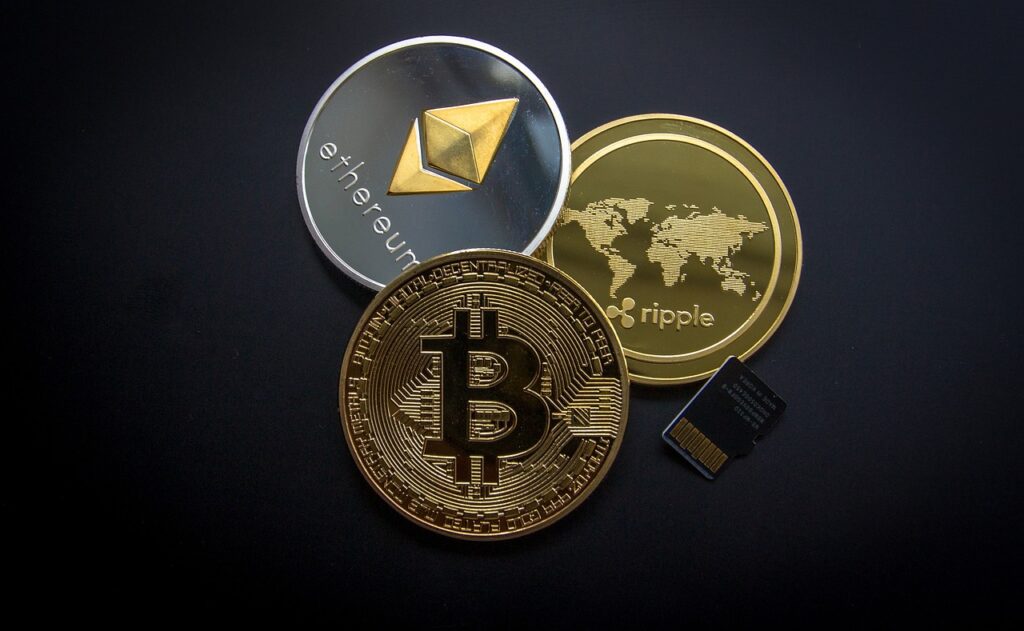XRP and Bitcoin are both popular cryptocurrencies, but they differ in many ways. In this article, we’ll explore the key differences between XRP and Bitcoin.
Purpose
One of the main differences between XRP and Bitcoin is their purpose. Bitcoin was created as a decentralized peer-to-peer payment system that operates on a blockchain. The idea behind Bitcoin was to create a digital currency that could be used to make transactions without the need for intermediaries like banks.
On the other hand, XRP was created to solve a specific problem in the financial industry – the slow and expensive process of cross-border payments. XRP is designed to be a fast and efficient bridge currency that can facilitate cross-border payments between different currencies.
Consensus mechanism
Another key difference between XRP and Bitcoin is the consensus mechanism they use. Bitcoin uses a proof-of-work consensus mechanism, which requires miners to solve complex mathematical problems to add new blocks to the blockchain. This process is energy-intensive and can be slow, resulting in longer transaction times and higher fees.
XRP, on the other hand, uses a unique consensus mechanism called the XRP Ledger Consensus Protocol. This protocol uses a network of trusted validators to confirm transactions and add new blocks to the XRP ledger. This process is much faster and more energy-efficient than proof-of-work, allowing XRP to process transactions much faster and with lower fees than Bitcoin.
Supply
Bitcoin has a fixed supply of 21 million coins, of which around 18.6 million have already been mined. The rate of new Bitcoin being created is halved every four years, which means that the last Bitcoin is expected to be mined around the year 2140.
XRP, on the other hand, has a total supply of 100 billion coins, with around 46 billion in circulation. The remaining coins are held in escrow by Ripple, with a portion released into circulation each month. This means that XRP has a much larger supply than Bitcoin, which could impact its value over time.
Centralization
Another key difference between XRP and Bitcoin is their level of centralization. Bitcoin operates on a decentralized blockchain, meaning that there is no central authority controlling the network. Transactions are verified and confirmed by a network of nodes spread around the world.
XRP, on the other hand, is owned and controlled by Ripple, a centralized company. Ripple holds the majority of XRP coins and can influence their price by releasing or withholding them from the market. This has led to criticism from some in the cryptocurrency community who argue that XRP is not truly decentralized.
Use cases
Bitcoin is primarily used as a store of value and a means of exchange. It can be used to make purchases at merchants that accept Bitcoin or to transfer value to other Bitcoin users around the world. Some investors also see Bitcoin as a hedge against inflation or a safe haven asset in times of economic uncertainty.
XRP, on the other hand, is designed specifically for cross-border payments. It can be used to facilitate fast and efficient transfers of value between different currencies, making it an attractive option for banks and financial institutions that need to move large amounts of money around the world. Additionally, XRP can also be used for micropayments and other small transactions.
In conclusion, while XRP and Bitcoin are both cryptocurrencies, they serve different purposes and operate on different technical systems. XRP is designed specifically for cross-border payments, while Bitcoin is primarily used as a store of value and a means of exchange. Additionally, XRP uses a unique consensus mechanism that allows it to process transactions much faster and with lower fees than Bitcoin, but it is also criticized for its level of centralization. Ultimately, the choice between XRP and Bitcoin depends on individual needs and preferences.






